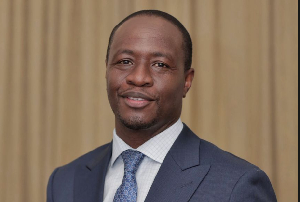The 2016 presidential candidate of the New Patriotic Party, Nana Addo Dankwa Akufo-Addo, has said he remains optimistic about Ghana’s future because, his government, God-willing in 2017, will take office with a clear programme aimed at the structural transformation of Ghana’s economy.
With 77% of Ghana’s total export revenues in 2014 coming from gold, no different to the Guggisberg economy Ghana had in 1928, where 70% of our foreign exchange earnings were from gold, cocoa and timber, Nana Akufo-Addo explained that it comes as no surprise that “in Ghana we are so much poorer than we need to be.”
Despite Ghana’s status as many people’s favourite African country, like other African societies, the NPP flagbearer explained that the current structure of Ghana’s economy offers limited opportunities for the masses.
“One thing that Ghana, and Africa, must do is add value to the sale of raw materials and natural resources. We need to transform stagnant, jobless economies built on the export of raw materials and unrefined goods to value-added economies that provide jobs to build strong middle-class societies and lift people out of dire poverty,” he added.
Nana Akufo-Addo made this known on Tuesday when he delivered a speech at the Heritage Foundation, a leading Think Tank in Washington, on the theme “A Vision for Ghana and Africa.”
Addressing the gathering, comprising former senior White House officials, US ambassadors, CEOs of major corporations, and Steve Forbes of Forbes publications, the NPP flagbearer explained that the spectacular development of economies in East Asia was as a result of the modernisation of agriculture, a clear industrial policy, and the rationalisation of their respective financial sectors to support growth in agriculture, and growth in manufacturing and industry.
“That is the way we can build a resilient economy,” he maintained.
Agriculture in particular, he said, must be modernised, with the help of government to bring about this economic transformation.
“Over the border in Cote d’Ivoire, we are seeing a tremendous expansion of agricultural productivity. Today, the export value of products from Côte d'Ivoire – cashew, cotton, cocoa, oil palm and coffee – is $12bn a year. The same can happen in Ghana with our farmers,” he added.
With Africa benefitting from “inward investment from the West and from major developing economies, particularly China”, Nana Akufo-Addo added that it is imperative “to put these investments to the right purpose, which is to develop our infrastructure for the long term, diversify the economy, and develop trade within the continent and within its regions.”
The over-dependence on the export of raw materials, Nana Akufo-Addo added, has increased, stressing that “it is this dependence that feeds our dependence on foreign aid. We cannot be doing the same thing over and over again and expect a different result.”
In view of this, and with a clear programme of action for the industrialisation of Ghana – an economic transformation that touches every region of Ghana – Nana Akufo-Addo stated that he “remains optimistic about our future”, adding that “I am proud to be a Ghanaian.”
He told the gathering that Ghana welcomed “the vigilance, the advice and the assistance of all lovers of freedom as our country continues its journey to prosperity and modernity.”
General News of Wednesday, 21 October 2015
Source: starrfmonline.com













